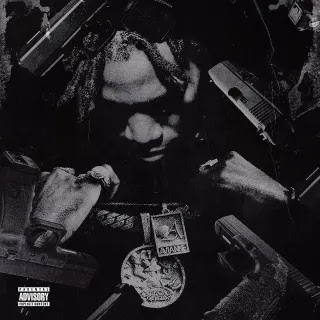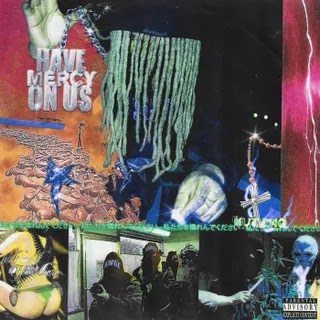The rapper’s second full-length is intense and riotous, tapping into the anger at the heart of Black America for an eclectic and captivating record.
In 1968, following the assassination of Martin Luther King, Jr., psychiatrists William H. Grier and Price M. Cobbs wrote about the psychological toll of the moment. “People bear all they can, and if required, bear even more. But if they are black in present-day America they have been asked to shoulder too much. They have had all they can stand. They will be harried no more. Turning from their tormentors, they are filled with rage.”
The words come from Black Rage, a text that remains potent nearly five decades later. “If racist hostility is to subside, and if we are to avoid open conflict on a nationwide scale, information is the most desperately needed commodity of our time. And of the things that need knowing, none is more important than that all blacks are angry.” These are the pillars upon which Alabama-born musician Pink Siifu presents NEGRO. Originally titled To Be Angry, the album siphons the repressed ire of Black America. “U are allowed to be angry,” he wrote in a description on Bandcamp. It is a bracing record that is at once crushing and liberating.
NEGRO is about as bold a move as Pink Siifu could have made. It’s a dramatic sonic departure from his debut solo full-length, 2018’s lo-fi rap breakthrough ensley. The messages or politics won’t come as a shock to anyone who has paid close attention to his discography, but it is definitely gutsy to follow your most popular album with your most confrontational one. Siifu sounds nearly ready to explode. The album grabs from hardcore punk, free jazz, and noise music across songs that are fleeting and fervent; 14 of the 20 are under two minutes. In bursts, he performs in defense of looting, in opposition to police violence, and in support of black solidarity. Where ensley was nuanced and interior, NEGRO is intense and riotous.
In a manifesto on the website negro.life, Siifu outlines the influences of NEGRO, some directly sampled, others a phantom presence in the room: Malcolm X, the proto-punk band Death, the Afrofuturist high priest Sun Ra, along with others like writer and activist Amiri Baraka and yogi MC Gonjasufi. This swirling mass of influence is palpable throughout and divergent songs like “.ON FIRE, PRAY!” and “Nation Tyme.” illustrate the vast scope and eclecticism of the project.
Pink Siifu is a rapper, but there isn’t much “rapping” on NEGRO. (For anyone looking for that sort of thing, he released two projects at the end of 2019: Black Sand with Akai Solo and Bag Talk with Yungmorpheus.) Normally, Siifu raps like he’s trying to tell you something he doesn’t want anyone to overhear, but here, his mission is full guttural howling. On the Na-Kel Smith-assisted “Dirt,” he blurts out the verses as if through a megaphone, and “steal from the ENEMY” is a series of near-indecipherable grunts and squawks. NEGRO is best when Siifu’s fury is at its peak. The rumbling racket of “SMD” feels like hurtling toward a black hole. The heavy distortion of “homicide/genocide/ill die” scrubs away at you like a Brillo pad. The industrial rhythms of “bebe’s kids, APOLLO” feel like wandering into a rave at a Ford assembly plant. These songs attack the senses.
Much of the album’s anger is aimed specifically at the police. “run pig run” and “Chris Dorner” take “copwatching” to the next level with fantasies of bringing the fight to them. “You have to shoot a pig, before they shoot you/Pig shoot, we shoot,” he yells on the former; in the latter, he references someone who did just that—the rampaging black officer who declared “unconventional and asymmetric warfare” on the LAPD before dying in a standoff. As if to preempt anyone who might dismiss these songs as “extreme,” there’s “ameriKKKa, try no pork.,” which opens with news clips from several racially motivated police murders before being washed out by white noise and an echoing news story of police violence warped beyond recognition. For many of us, this endless succession of incidents incites feelings of helplessness; NEGRO taps into our irrepressible desire to see a reckoning.
The rage can be galvanizing, but it’s the expressions of tenderness between that have the most power—they are reminders that this frustration is merely a response to frequent injustice suffered at the hands of an oppressor, and that this is all in service of freeing a persecuted community. “we need mo color. Abundance” is hushed jazz with shimmering guitar in search of a less colorless world. The soulful “myheartHURT” is wedged between the most abrasive run of tracks like a reprieve. “Black Be Tha God, NEGRO. (wisdom.cipher),” which samples Eddie Kendricks’ enduring 1977 anthem “Intimate Friends,” is a dedication to the circle of family, friends, and collaborators from which Siifu draws his strength.
This album couldn’t have been made without that community. The intro is dedicated to the late Los Angeles producer Ras G, who introduced him to Sun Ra. The Los Angeles rapper Zeroh mastered the album. Siifu credits Slauson Malone’s influence for the help with sequencing. Jeremiah Jae extends beyond his typical range as a beatmaker on the record, but still adds some of his signature flourishes. Roper Williams produces some of the album’s fiercest moments. Trumpeter Chris Williams pops in the margins. Producer Ted Kamal, self-proclaimed witch rapper Moor Mother, and theOGM, one half of punk-rap duo Ho99o9, all lend their voices to the maelstrom. Though rage is the most present thing, it is not the most important thing. By the end of the album, it is clear that the point is not the wrath but the bond shared by those expressing it. All blacks are angry. On NEGRO, there is some comfort to be found in experiencing that together.
👉👇You May Also Like👇👌
View the original article here
















0 comments:
Post a Comment